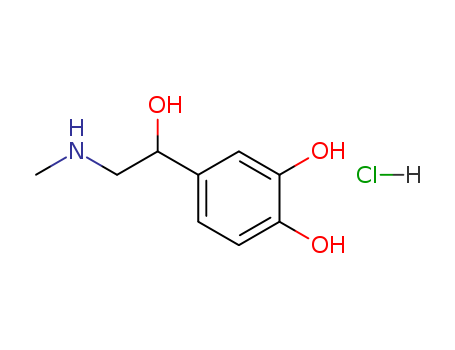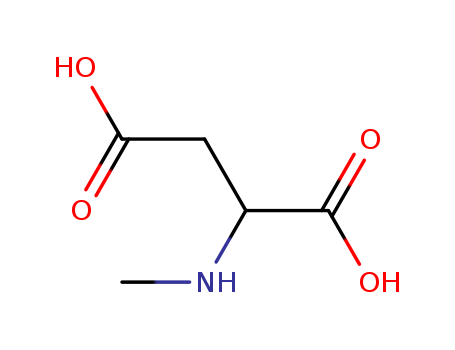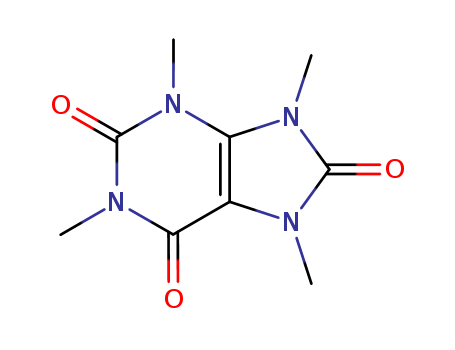
506-37-6
- Product Name:Nervonic Acid
- Molecular Formula:C24H46 O2
- Purity:99%
- Molecular Weight:366.628
Product Details
Melting Point:42 - 44 C
Appearance:clear to yellowish crystalline powder
Purity:99%
Factory Sells Best Quality Nervonic Acid 506-37-6 with USP
- Molecular Formula:C24H46 O2
- Molecular Weight:366.628
- Appearance/Colour:clear to yellowish crystalline powder
- Vapor Pressure:1.68E-10mmHg at 25°C
- Melting Point:42 - 44 C
- Refractive Index:1.4806 (estimate)
- Boiling Point:479.2ºC
- PKA:4.78±0.10(Predicted)
- Flash Point:>110 ºC
- PSA:37.30000
- Density:0.887g/cm3
- LogP:8.44910
Nervonic acid(Cas 506-37-6) Usage
|
Biochem/physiol Actions |
Nervonic acid (C24:1), a component of membrane sphingolipids and phosphatidylethanolamines, may be a useful predictor of chronic kidney disease mortality and diabetes. Nervonic acid oils are being studied for pharmaceutical, nutraceutical and industrial applications. Nervonic acid is a major component of Lunaria oil. |
|
Source |
Sources of Nervonic acid include oil crop seeds, oil-producing microalgae and other microorganisms. Transgenic technology can also be used to improve the source and production of Nervonic acid. |
|
Definition |
ChEBI: Nervonic Acid is a monounsaturated fatty acid with a 24-carbon backbone and the sole double bond originating from the 9th carbon from the methyl end, with this bond in the cis- configuration. It is a metabolite found in the aging mouse brain. |
|
General Description |
Nervonic acids are the products of desaturation and elongation processes of various fatty acids such as palmitic acid, stearic acid, oleic acid, etc. |
| Uses | Nervonic acid benefits the treatment of neurological diseases and the health of brain. |
InChI:InChI=1/C24H46O2/c1-2-3-4-5-6-7-8-9-10-11-12-13-14-15-16-17-18-19-20-21-22-23-24(25)26/h9-10H,2-8,11-23H2,1H3,(H,25,26)/b10-9-
506-37-6 Relevant articles
A Facile and Efficient Method for the Synthesis of Labeled and Unlabeled Very Long Chain Polyunsaturated Fatty Acids
Hamberg, Mats
, p. 489 - 494 (2021/04/19)
Several methods are available for elonga...
High-level production of nervonic acid in the oleaginous yeast Yarrowia lipolytica by systematic metabolic engineering
Hang Su, Penghui Shi, Zhaoshuang Shen, Huimin Meng, Ziyue Meng, Xingfeng Han, Yanna Chen, Weiming Fan, Yun Fa, Chunyu Yang, Fuli Li & Shi’an Wang
Communications Biology volume 6, Article number: 1125 (2023)
For example, the KCS ACJ61777.1 (GenBank No. EU871787) identified in the biennial grass Lunaria annua used C22:1-acyl-CoA as substrate to synthesize nervonic acid when expressed in the Ethiopia mustard Brassica carinata34, while it elongated C18:1-acyl-CoA to produce mainly eicosenoic acid (C20:1, ω-9) and erucic acid (C22:1, ω-9, EA) when expressed in the yeast Rhodosporidium toruloides...
506-37-6 Process route
-

- 50995-29-4
1-hydroxy-cis-15-tetracosene

-

- 506-37-6
Nervonic acid
| Conditions | Yield |
|---|---|
|
With 2,2,6,6-Tetramethyl-1-piperidinyloxy free radical; [bis(acetoxy)iodo]benzene; In water; acetonitrile; at 20 ℃; for 7h;
|
70% |
-

- 2733-88-2
methyl cis-tetracos-15-enate

-

- 506-37-6
Nervonic acid
| Conditions | Yield |
|---|---|
|
With sodium hydroxide; In ethanol; at 60 ℃; for 1h; Inert atmosphere;
|
506-37-6 Upstream products
-
111924-39-1

(Z)-22-bromo-9-docosene
-
996-82-7

sodium diethylmalonate
-
112-80-1

cis-Octadecenoic acid
-
629-98-1

erucyl alcohol
506-37-6 Downstream products
-
1460-18-0

pentadecanedioic acid
-
557-59-5

n-tetracosanoic acid
-
115863-91-7

tetracos-15t-enoic acid
-
112-05-0

nonanoic acid
Relevant Products
-
Epinephrine Hydrochloride
CAS:329-63-5
-
N-Methyl-DL-Aspartic Acid
CAS:17833-53-3
-
Tetramethyluric acid
CAS:2309-49-1







